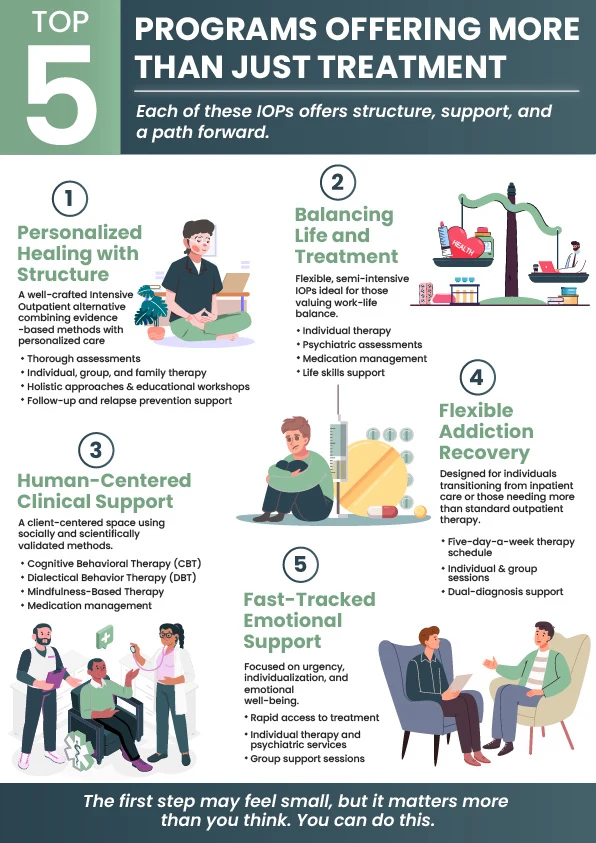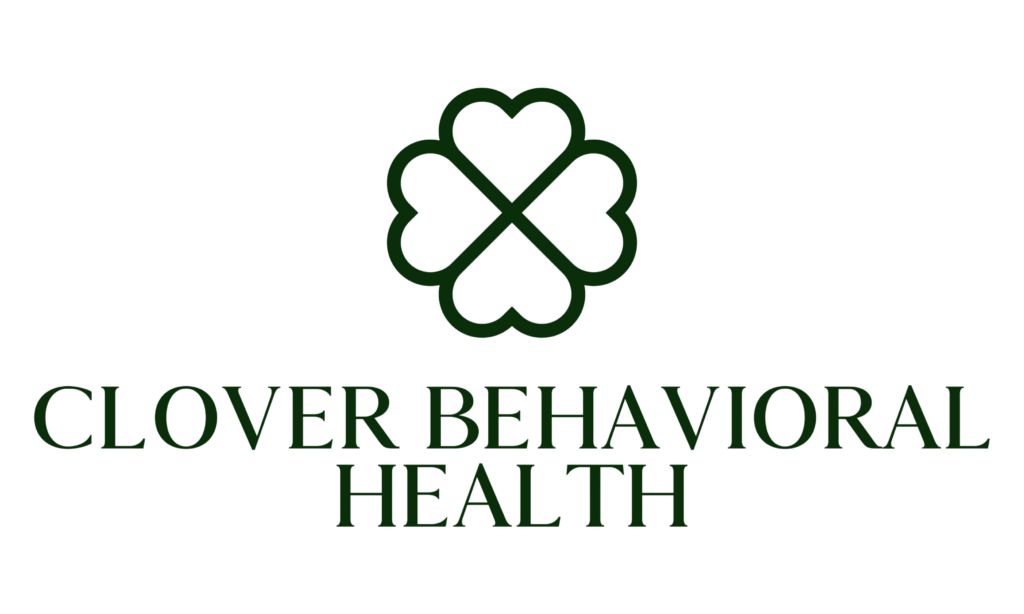At times, we feel so detached and lost in a sea of problems that we forget we share space with other people who are going through similar struggles. Some of our difficulties are more generic than we think and connect us to one another regardless of our differences.
We might be unique, but we are all in this together. Hence, group therapy is a revolutionary technique in the field of psychotherapy, which, according to meta-analytic studies, is as effective as other active treatments for various mental disorders.
Group therapy at Clover Behavioral Health provides an environment in which the people of Littleton, MA, can quit faking and begin relating not as patients, but as human beings. Understanding that you are not a broken person, that someone else also says, “Me too,” and the chance to speak about your difficulties are the initial steps in recovery.
What Does Group Therapy Look Like at a Mental Health Treatment Center?

Group therapy most often entails a trained psychologist leading a small group therapy session of 5 to 15 individuals. The sessions take place for 90 to 120 minutes, during which the participants are equipped with interpersonal skills and their negative thinking is confronted.
Moreover, groups can be led either in a free-form or a planned format. Free-form gives members autonomy to discuss whatever they want with little guidance by the therapist. On the other hand, a planned format includes a schedule of activities and discussions that would be followed by everyone.
Everyone should have the opportunity to benefit from group therapy’s therapeutic effects. That’s why Clover Behavioral Health has collaborated with several insurance companies to make therapy affordable for everyone.
Which Disorders Benefit Most from Group Therapy?
In a recent series of 11 meta-analyses, researchers have found group therapy to be the most effective for the following disorders:
- Depression
- Bipolar Disorders
- Schizophrenia
- Anxiety Disorders
- Panic Disorders
- Obsessive-Compulsive Disorder
- Posttraumatic Stress Disorder
- Eating Disorders
- Borderline Personality Disorders
- Substance Use Disorders
- Chronic Pain
Upon further research, it showed the most reduction in the symptoms of anxiety, depression, and OCD. Medium effects have been found for eating disorders and PTSD, while small effects were seen for substance use and schizophrenia.
5 Benefits of Group Therapy for People of Littleton, MA
You may live in Littleton and may know your neighbors by name, may wave to people you recognize, and yet may feel that nobody understands what you are experiencing. Such is the silent contradiction of small-town existence: linked, but in so many ways, unlinked where it counts the most.
Group therapy bridges that gap. It’s a reminder that growth doesn’t happen in isolation. For Bay Staters, it offers a unique opportunity to heal alongside others who understand what it means to quietly carry the weight.
Here are five ways group therapy makes a difference.
Reminds That You Aren’t Alone
Loneliness does strange things to a person. It murmurs that nobody understands, that your suffering is peculiar to you, too dirty to describe, too burdensome to tell. Group therapy breaks that circle.
There is a shift when you are sitting in a room, and you hear a person tell of a thought that you have had but never spoken aloud. You realize your struggle is a shared human experience. This is what psychologists refer to as universality.
It is the therapeutic power of realizing others face similar issues. It reduces shame, builds trust, and lowers emotional walls that individual therapy alone might take longer to reach.
Builds Interpersonal Skills
During group therapy, individuals are taught to engage in conversations and actively listen to other divergent opinions. This helps them to expand their knowledge and compassion for one another.
In fact, each session is a rehearsal for real life, the one where you can make attempts, fail, and make attempts again. If you tend to have social anxiety or depression, it is a lifeline because you can expand your comfort zone in a very supportive and forgiving environment. Such skills can ultimately enhance relationships in social, occupational, and personal spheres of life.
Increased Accountability
Having supportive peer groups can also help you build towards your goals. Once you have people that you know are showing up, working through their own demons, and cheering you on to keep going, you start to expect more of yourself. Not to feel guilty, but to respect them and to respect yourself as you develop.
It Helps You Find Your Voice
During group therapy, individuals are asked to actively engage in conversation as well as to listen to the other differing opinions. This enables them to expand their knowledge and compassion for one another.
Moreover, it allows you to push yourself out of your comfort zone in an environment that is supportive and forgiving. Such skills can eventually enhance relationships in social, occupational, and personal areas of life.
Cost-Effective
For individuals and families in Littleton, MA, who may be balancing financial constraints with the urgent need for support, group therapy offers a practical path. With our mental health treatment center, you no longer need to compromise on quality. The cost becomes manageable by sharing the time and expertise of a licensed therapist with others.
Group Therapy Support in Littleton, Massachusetts
You will find several mental health treatment centers in Littleton, but Clover Behavioral Health tops the chart. We offer group therapies in our day treatment and intensive outpatient programs, where we connect individuals with similar experiences. Our trained staff first evaluates the symptoms and then prescribes group therapy accordingly.
With a 5-star rating on Google reviews, here is what one of our clients, Mr. Gabriel, wrote:
“Definitely, I’m willing to recommend it. This place has not only given hope to some but has created a new insight into a better life with structure for their clients, but has also presented and created opportunities for restructuring one into the community.”
Final Words
“People need people—for initial and continued survival, for socialization, and for the pursuit of satisfaction. No one—not the dying, not the outcast, not the mighty—transcends the need for human contact.” ― Irvin D. Yalom, The Theory and Practice of Group Psychotherapy
You no longer need to struggle alone. Contact Clover Behavioral Health today at 978-216-7765 and begin your journey to recovery like Gabriel and thousands of others.



















